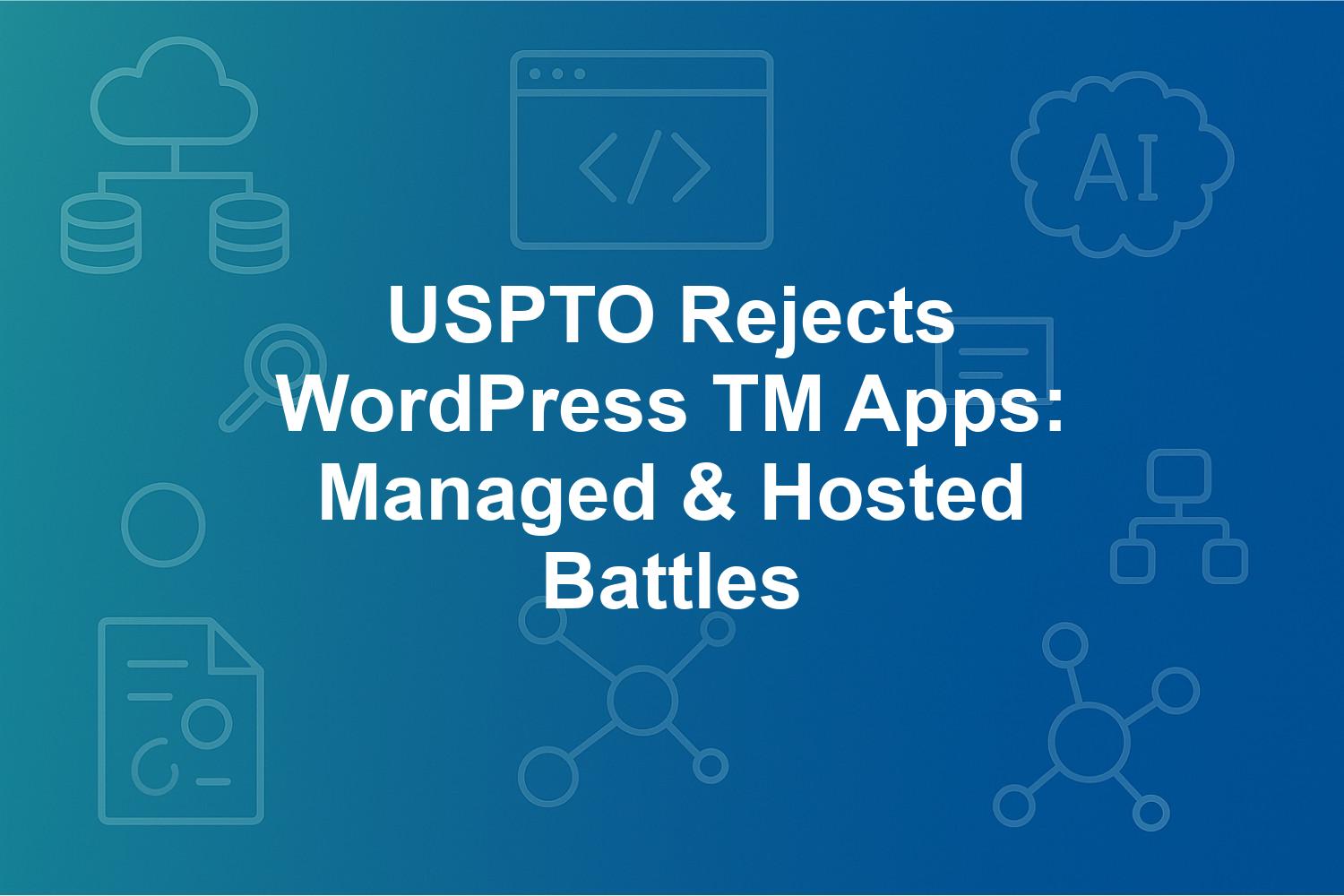Blog
USPTO Rejects WordPress TM Apps: Managed & Hosted Battles

The battle over WordPress trademarks has reached a critical juncture, drawing attention from digital marketers and entrepreneurs alike. Understanding the implications of the USPTO’s recent rejections of trademark applications related to WordPress is essential for anyone involved in online business. In this article, we’ll dissect the reasons behind these rejections, explore the broader impact on managed and hosted services, and offer insights to navigate this evolving landscape.
Understanding Trademark Basics
Before diving into the specifics, let’s clarify what trademarks are. Trademarks protect brand identifiers such as logos, phrases, or names that distinguish products or services in the marketplace. For digital platforms like WordPress, trademarks play a crucial role in maintaining brand integrity and user trust.
The USPTO’s Stance on WordPress Trademarks
Recently, the United States Patent and Trademark Office (USPTO) rejected several applications for trademarks related to managed and hosted WordPress services. This decision has sparked conversations among businesses operating in this domain.
Reasons for Rejection
-
Generic Terms: One of the primary reasons the USPTO often rejects trademark applications is if the term is deemed generic. Words such as “WordPress” are widely recognized and used across the industry, making it difficult for a single entity to claim exclusive rights.
-
Lack of Distinctiveness: For a trademark to be granted, it must have distinct features that set it apart from others. In this instance, many of the applications failed to demonstrate uniqueness.
- Potential for Confusion: The USPTO aims to prevent any potential confusion among consumers. If multiple companies utilize similar terms, it can mislead customers regarding the source of a product or service.
Implications for Managed and Hosted Services
The rejection of these applications presents several challenges and opportunities for businesses operating in the managed WordPress space.
Challenges Faced
-
Brand Identity: Without trademark protection, companies may struggle to establish their brand identity. This could lead to increased competition as many businesses use similar terms.
- Marketing Efforts: Companies might need to rethink their marketing strategies. Utilizing generic terms can diminish the effectiveness of campaigns and reduce brand recognition.
Opportunities Available
-
Innovation in Branding: This landscape offers an opportunity for businesses to think creatively about their branding strategy. Unique and catchy names can help to carve out a distinct presence.
- Collaborative Efforts: Companies can explore partnerships with existing WordPress community members. By collaborating, businesses can bolster their visibility and credibility.
Tips for Navigating Trademark Issues
To mitigate the risks associated with trademarking, consider the following strategies:
-
Conduct Comprehensive Research: Before submitting a trademark application, thoroughly research existing trademarks to gauge potential conflicts. Tools and databases are available for preliminary searches.
-
Seek Legal Advice: Consulting with a trademark attorney can provide valuable insights into the nuances of trademark law. They can help you navigate through potential pitfalls.
- Focus on Unique Branding: Instead of relying on generic terms associated with WordPress, consider creating a unique brand that reflects your services and audience.
Frequently Asked Questions
What is a trademark?
A trademark is a legally registered symbol or name that represents a company’s products or services, helping to distinguish them from competitors.
Why is the USPTO important?
The USPTO regulates trademarks in the United States, ensuring that brands maintain their integrity and consumers can easily identify products and services.
Can I apply for a trademark related to WordPress?
While technically possible, trademark applications for generic terms related to WordPress face significant hurdles due to potential rejections.
Conclusion
The USPTO’s rejection of WordPress trademark applications highlights the complexities of brand protection in the digital age. As businesses adapt to this evolving environment, focusing on innovative branding strategies and legal compliance will be critical. For further insights into trademark strategies and digital marketing, consider exploring Theme Bazar for relevant resources.
By understanding the landscape of trademarks and implementing effective strategies, businesses can thrive in a competitive market without risking their brand integrity.

